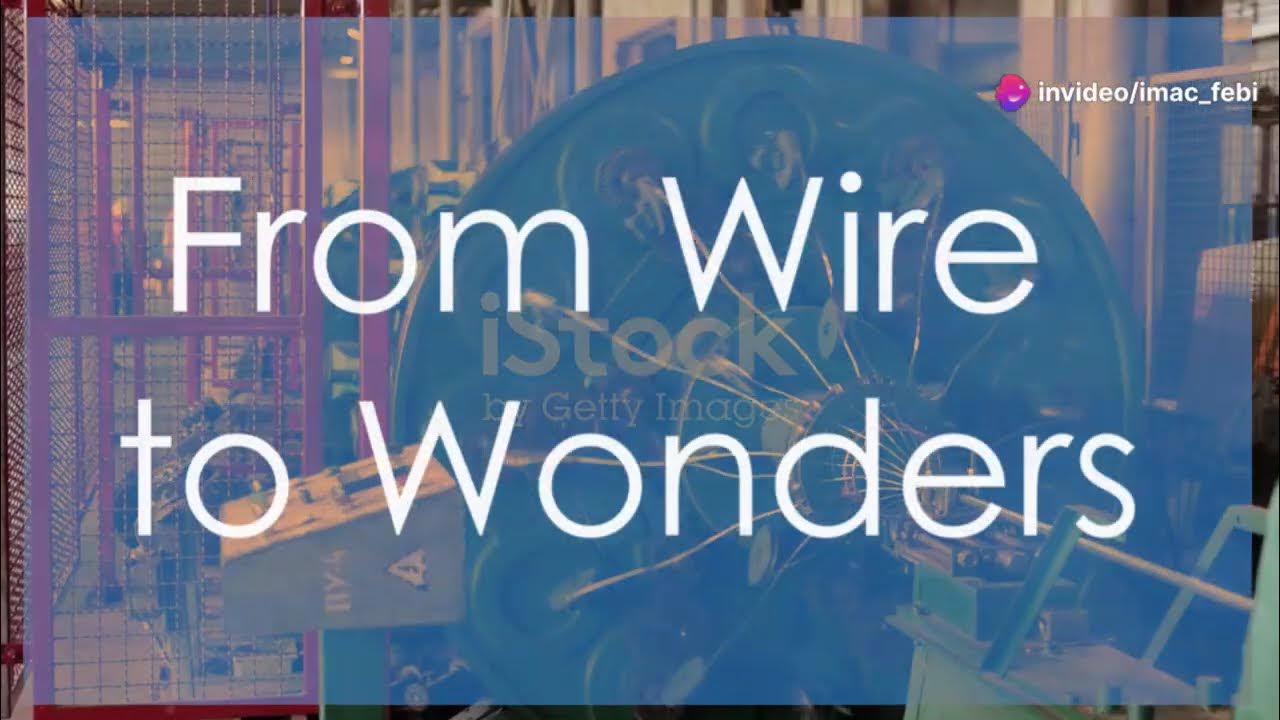The 7 Biggest Future Trends In Manufacturing
Summary
TLDRThe video discusses seven key trends shaping the future of manufacturing, transforming industries from cars to consumer products. These trends include the Industrial Internet of Things (IIoT), predictive maintenance using AI, digital twins for simulations, fully automated 'dark factories,' collaborative robots (cobots), 3D printing enabling personalized manufacturing, and sustainability through circular economy practices. These innovations, part of Industry 4.0, aim to enhance productivity, reduce costs, and address climate change, helping manufacturers adapt to new technologies and consumer demands.
Takeaways
- 🌐 Manufacturing is evolving into Industry 4.0, characterized by interconnected devices and automation.
- 🔗 The Industrial Internet of Things (IIoT) is crucial for collecting data from sensors, optimizing maintenance, and reducing machine downtime.
- 🔮 Predictive maintenance leverages AI and sensor data to forecast machinery failures, improving operational planning.
- 💻 Digital twins allow manufacturers to simulate physical processes, machinery, and even entire supply chains for optimization.
- 🏭 Automation is advancing to the point of fully automated 'dark factories' that operate without human intervention.
- 🤖 Robots and cobots (collaborative robots) are being integrated into factories, working alongside humans safely and efficiently.
- 🖨️ 3D printing is transforming manufacturing by enabling additive production and allowing for product personalization and unique designs.
- 🍃 Sustainability is becoming a key focus in manufacturing, with attention to reducing environmental impacts and embracing the circular economy.
- 🔄 Regulatory changes, such as the 'right to repair,' are influencing how manufacturers design and produce goods, pushing for more sustainable solutions.
- 📚 Manufacturers need to adapt to these trends to stay competitive, including automation, sustainability, and personalized production.
Q & A
What is Industry 4.0, and why is it significant?
-Industry 4.0 refers to the latest industrial revolution, where trends like automation, interconnected devices, and smart factories transform manufacturing processes. It is significant because it enhances productivity, reduces downtime, and allows for more efficient and sustainable manufacturing.
How does the Industrial Internet of Things (IIoT) improve manufacturing?
-The Industrial Internet of Things (IIoT) uses interconnected devices to collect and transmit data in manufacturing settings. This data helps manufacturers monitor machine performance, optimize maintenance, reduce downtime, and predict potential failures, improving overall efficiency.
What role does predictive maintenance play in modern manufacturing?
-Predictive maintenance uses sensor data and artificial intelligence to detect failure patterns in machinery. It helps manufacturers predict when parts or machines are likely to fail, improving maintenance planning, reducing unexpected downtimes, and increasing operational efficiency.
What are digital twins, and how are they used in manufacturing?
-Digital twins are digital simulations of physical processes, objects, or systems, such as machinery or factory layouts. Manufacturers use digital twins to optimize factory layouts, processes, and supply chains, and they are becoming more common for planning and process improvement.
What are dark factories, and how do they differ from traditional factories?
-Dark factories are highly automated production facilities that operate without human intervention. Unlike traditional factories, dark factories rely entirely on machines and robots for production, offering greater accuracy, reduced costs, and continuous operation without breaks.
What are cobots, and how do they work alongside humans in manufacturing?
-Cobots, or collaborative robots, are designed to work safely alongside humans. They are equipped with sensors and AI to detect human presence, enabling them to assist workers in tasks without compromising safety. Cobots enhance human-robot collaboration on factory floors.
How is 3D printing revolutionizing manufacturing?
-3D printing, or additive manufacturing, is changing the way products are made by building objects layer by layer. This allows manufacturers to create complex shapes, personalize products, and produce unique items more efficiently than traditional methods, boosting innovation and customization.
Why is sustainability becoming a key trend in manufacturing?
-Sustainability is a growing trend as manufacturers are increasingly focused on reducing their environmental impact. This involves adopting circular economy practices, producing greener products, and complying with regulations like the 'right to repair,' which promotes eco-friendly production and longevity of products.
What is the circular economy, and how does it affect manufacturing?
-The circular economy emphasizes reusing, recycling, and reducing waste in production processes. For manufacturers, it means designing products that can be repaired or recycled, minimizing resource use, and adopting more sustainable supply chains, all of which help address climate change.
How will future regulations impact manufacturing processes?
-Future regulations, such as those promoting sustainability and the 'right to repair,' will require manufacturers to produce products that are durable and repairable, rather than disposable. This shift will encourage more eco-friendly production practices and reduce the environmental footprint of manufacturing.
Outlines

This section is available to paid users only. Please upgrade to access this part.
Upgrade NowMindmap

This section is available to paid users only. Please upgrade to access this part.
Upgrade NowKeywords

This section is available to paid users only. Please upgrade to access this part.
Upgrade NowHighlights

This section is available to paid users only. Please upgrade to access this part.
Upgrade NowTranscripts

This section is available to paid users only. Please upgrade to access this part.
Upgrade NowBrowse More Related Video

Product Testing - Meaning, Purpose, Methods and Examples of Ikea and Samsung (Marketing 318)

Top 20 New Technology Trends That Will Define the Future

ESG M02 C03E

Nhìn ra thế giới: Ứng dụng công nghệ in 3D trong cuộc sống | Truyền hình Quốc hội Việt Nam

LA INDUSTRIA MANUFACTURERA

Proses Pembentukan Logam: Teknik, Metode, dan Aplikasi Terbaru!
5.0 / 5 (0 votes)